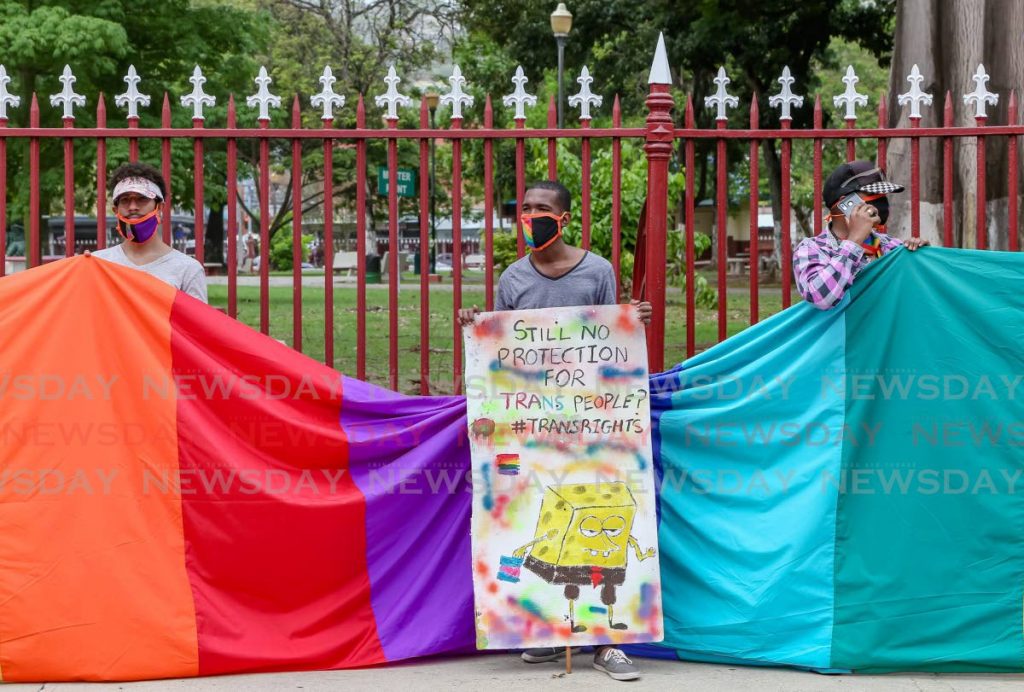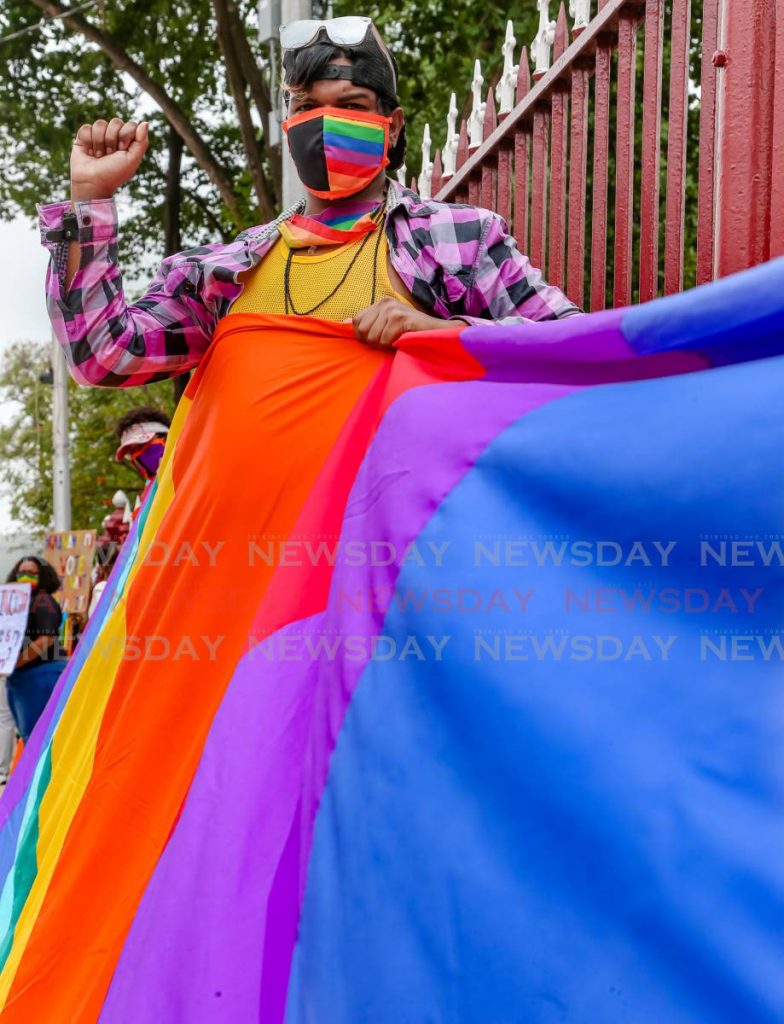LGBTI+ workplace policy gives advice on inclusivity

One of the findings of the recently released report The Economic Case for LGBT+ Inclusion in the Caribbean was that ensuring LGBT+ people felt comfortable in their workplaces led to greater productivity and output. Acceptance in workplaces can be made easier with the provision of a policy which employers can put in place. The recently launched Model LGBTI+ (lesbian, gay, bisexual, transgender, intersex) Workplace Policy for Trinidad and Tobago is a policy which has been developed for the TT context.
The policy – an initiative of Caiso: Sex and Gender Justice – was done in collaboration with the Equal Opportunity Commission (EOC) and the British High Commission. Research was conducted with the aid of Dr Wynette Harewood and Janet Peters of the Arthur Lok Jack Global School of Business, who engaged private sector employers, and employees from the LGBT+ community in TT.
Expert reviews of the draft policy were conducted by the EOC, business chambers committees, civil society and other stakeholder groups, to ensure that it was fit-for-purpose, achievable and fully supportive of the LGBTI+ employee’s ability to find an equal place at work.
The inclusion report, done by the global coalition Open For Business, said that businesses which included LGBT+ people were better able to attract and retain talent, and had higher levels of innovation, creativity, employee motivation, and quality output. It said they were better placed to benefit from the increasing spending power of the LGBT+ consumers, and have greater brand appeal and loyalty with consumers who want socially responsible brands. An example of this is Scotiabank TT, which recently received public approval after extending insurance medical benefits to same-sex partners.
These conclusions were drawn from interviews with 21 business leaders and employers throughout the private sector, including: Ansa McAl, Citibank, Insight MMC, Massy Group, NextDecade, Open Current, PWC, Regency Recruitment and Resources Ltd, RF&G Insurance, Sandals, and Scotiabank. Additionally, representatives from two chambers of commerce participated, including the American Chamber of Commerce and the Energy Chamber of Commerce, both in TT.
The model policy gives advice to employers on how to modify their workplace policies on issues such as discrimination and harassment; privacy; official records, names, and pronouns; dress code; restroom accessibility; how to deal with employees transitioning on the job; sex-segregated job assignments; workplace benefits; worker assistance programmes; training and how to deal with complaints.
It recommends the implementation of diversity champions and worker resource groups to assist employees with understanding the policies and creating a diverse and accepting workplace culture. The policy gives key definitions of terms around LGBTI+ issues as well as workplace discrimination and harassment.
In the foreword to the policy, Caiso founder Colin Robinson wrote that one of the assets of doing business in TT is the diversity of the workforce. (Robinson died of colon cancer on March 4.)
“It’s no secret from the management literature that workplaces that encourage and accommodate worker diversity see the returns in their bottom line. Researchers have also begun to document the costs to national economies of anti-LGBTI+ discrimination. Not to mention the economic and psychological harms to the workers themselves and their families. Ensuring LGBTI+ people find an equal place at work is in the interest not just of those workers but many others. Besides being good for business, making TT’s workplaces equal is also an ethical question for many, a simple matter of fairness.”
Many citizens of TT can apply to the EOC for instances of discrimination, unfair treatment and harassment, but this option is not available for LGBTI+ people, as the Equal Opportunity Act Chapter 22:03 – the main statutory framework addressing discrimination – excludes sexual orientation from its protected statuses, and as such makes LGBTI+ people vulnerable to discrimination, harassment and other indignities within society and their workplaces.
Speaking at the launch of the policy on June 30, Caiso director Dr Angelique Nixon said the organisation was willing to work with businesses and the private sector to help them create an enabling environment for LGBT+ employees.

“It’s not enough to have a policy, so while we’re encouraging you to adopt the policy and adapt it for your workplace environment, we also need sensitivity training. You have to create an enabling environment for all of your employees to understand the policy and it needs to be implemented in a way that all the staff and employees and upper management understand.
“We offer really important key definitions to help you understand LGBTI+ issues to contribute to diversity and inclusion. Because we’ve worked over the years to do the kind of advocacy we’re doing, we can help you and so we’re letting you know that Caiso is available and we can offer some of those LGBTI+ sensitivity trainings that are really important to help this policy move forward and we encourage management especially in your workplaces to be leaders. We need that political will and we need voices to stand up but it can’t only be as LGBTI+ people to speak out for justice and for safety.”
Fourteen companies have already signed on as early adopter Champions of the Model Policy, namely: Advisors Next Door; Amcham; Ansa McAl Group; Davyn Ltd; DeSiu Masks; Esau Oilfield Supplies Ltd; Heliconia Cakery; Imjin Security Services; Katrina Therapy Centre; MEP Publishers; Marine Minded Network; Nao Films; Regency Recruitment and Resources and Republic Bank.
Nixon said, “As Colin would always say, we want to be more than tolerated, we want to be accepted. We are here, we have been here for a long time and we’re not going anywhere, so we will work with you.”
The economic case report can be found at https://open-for-business.org/reports and the presentation can be viewed at https://www.youtube.com/watch?v=VJv2wdHQAI4/.
The workplace launch video can be viewed on Caiso's Facebook page @caiso and the Model Policy can be found at www.caisott.org/lgbti-workplace-policy.

Comments
"LGBTI+ workplace policy gives advice on inclusivity"